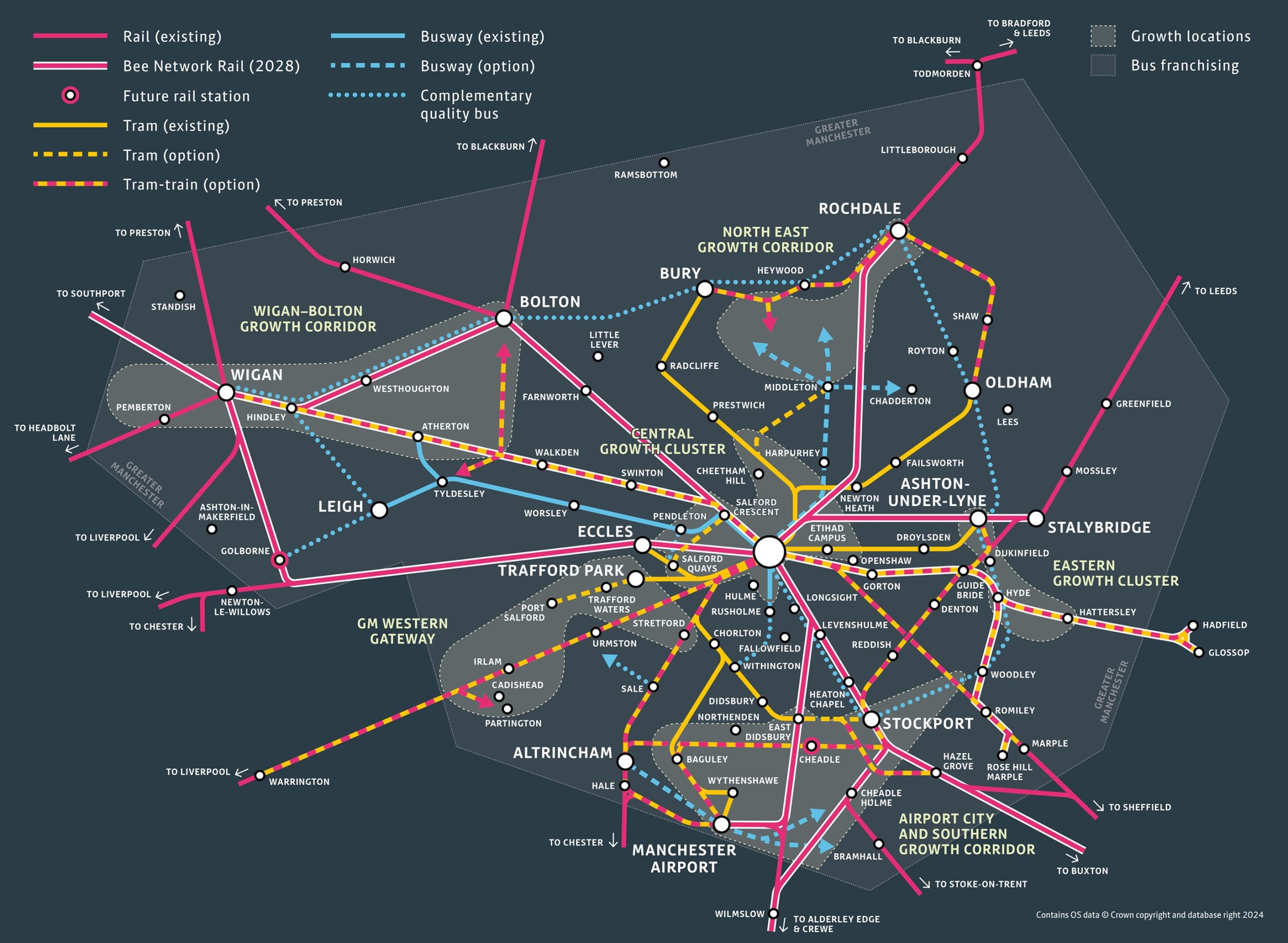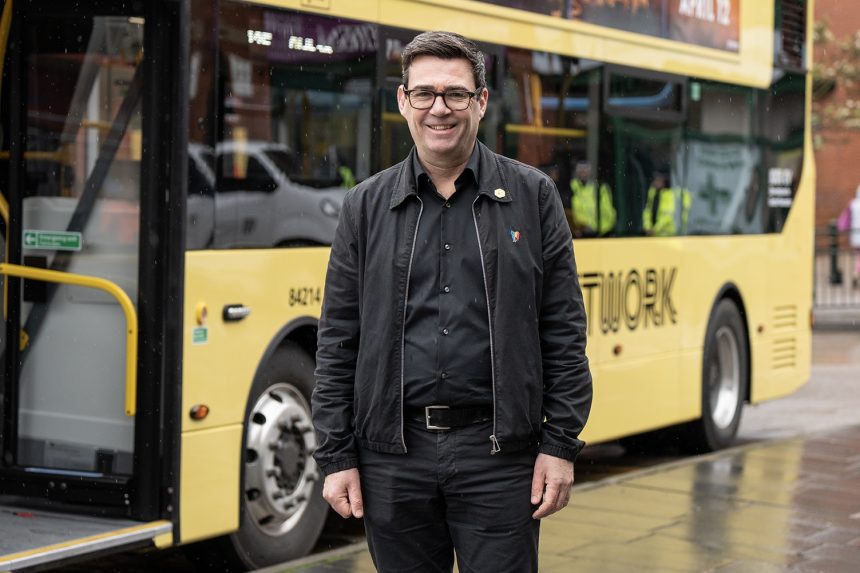Potential for further busway provision in Greater Manchester has been raised as part of long-term plans and emerging priorities for the city region’s integrated Bee Network.
Busway expansion is among wider scope for 15 rapid transit projects in the conurbation announced by Mayor Andy Burnham on 10 July. Of those, two could use buses, with the others focused on rail-based solutions. All are built around mainly segregated running.
One potential for busway captures North Manchester in an arc between the Metrolink tram route to Bury and the heavy rail line to Rochdale, with tram deployment also being evaluated in this case. The other is based on Manchester Airport in the south of the city region, with two busway corridors there giving options to complement tram or tram-train-based work.
Of the 15 rapid transit proposals floated, “detailed prioritisation” will take place this year to identify the top three prospects. Business case development is already underway by Transport for Greater Manchester (TfGM) on the North Manchester option that could include a busway or a new tram line.
A map published by Transport for Greater Manchester shows that a projected busway in North Manchester would follow a different route between the city centre and Middleton than the tram-based alternative. From there, the busway would split into three in the directions of Bury, Chadderton, and Heywood.

Should any further busway mileage be constructed in Greater Manchester, it would complement the Leigh Guided Busway, upon which services are currently operated by Go North West under a franchise contract.
Various “quality bus” corridors are also marked on TfGM’s map of rapid transit aspirations. Those are not dissimilar to some aspects of the Superloop concept introduced in London. They were earlier outlined as a Quality Bus Transit concept in the Greater Manchester Bus Service Improvement Plan and would capture strategically important bus routes
Mr Burnham says that “nowhere else in the country” is delivered as ambitious an active and public transport development programme as Greater Manchester. He notes that such work is necessary to support expected economic growth in the conurbation.
The plans in hand will increase revenue “for reinvestment in better services,” adds Transport Commissioner Vernon Everitt, who has been reappointed to that position by Mr Burnham.
In a further echo of work in London, TfGM will introduce a ‘hopper’ fare on Bee Network buses from January 2025, when the transition to franchised services across Greater Manchester completes. It will be priced at £2 for adults and £1 for children and allow the holder to make as many journeys as required within one hour.



























